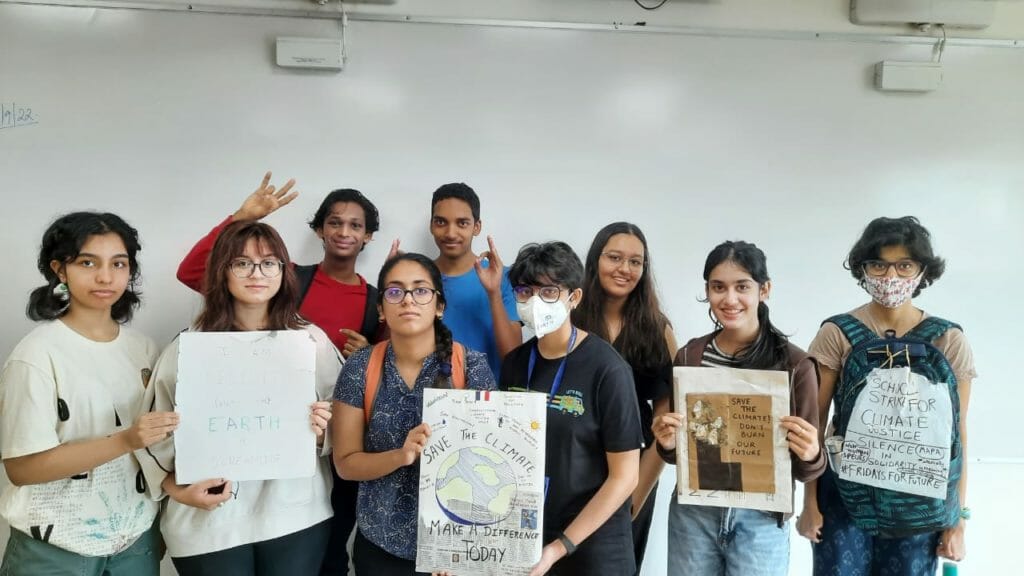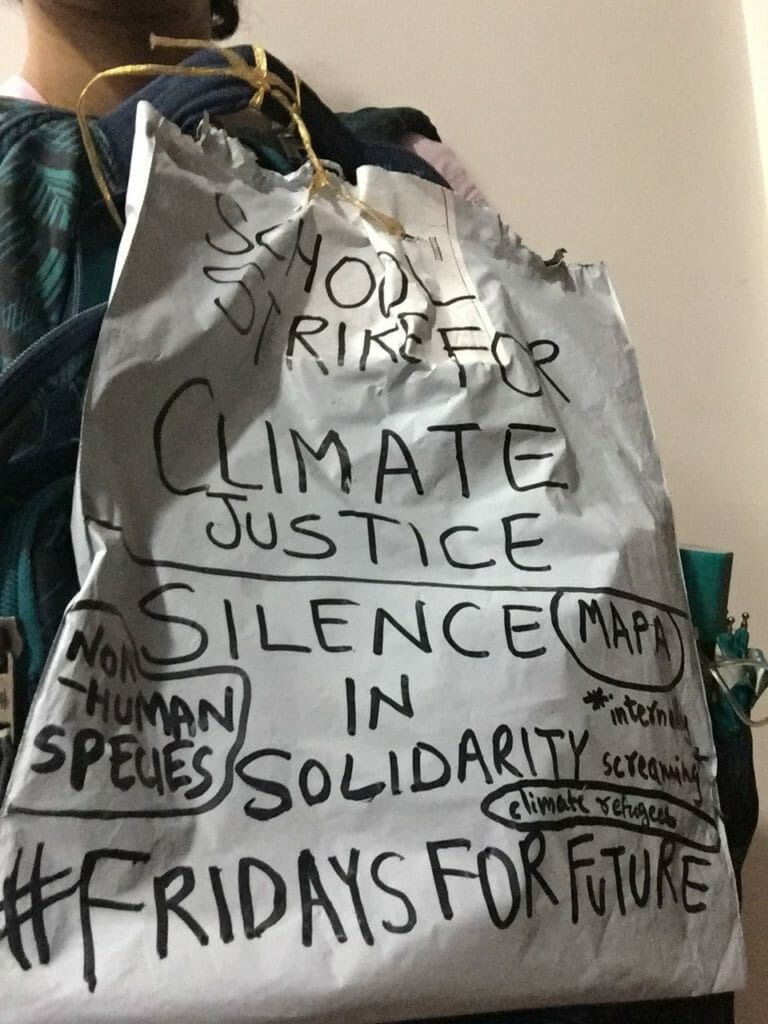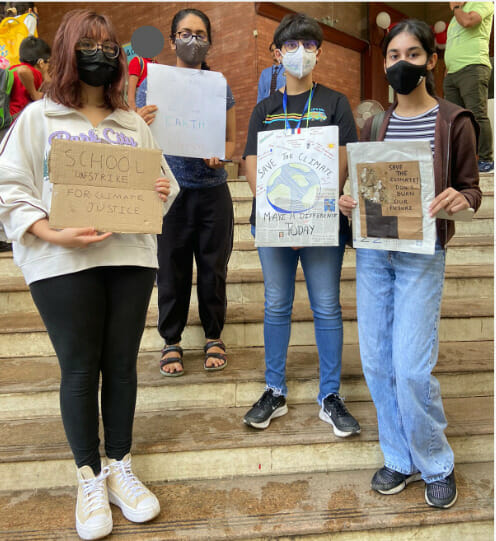Dear General Public, Corporations, and Decision-makers of Mumbai,
I, like many of my fellow students, grew up in a world where our present, future and heritage are under-threat due to climate change. As I discovered more about the social and ecological issues around me, the definitions of eco-angst and climate anxiety became unnervingly familiar.
Growing up in the 21st Century, we hear a lot about the environment—campaigns to “save electricity”, “save water” and “use paper bags”—but I always felt this approach does not look at the large-scale destruction and the climate disasters caused by it. We are told to micromanage our own individual actions—but who’s going to hold the higher-ups accountable for their macro-decisions? We’re taught that deforestation is bad, but how do we stop it when it’s happening right in front of our eyes? All these questions continued to bother me.
Read more : Climate change, rainfall patterns and what it means for Mumbai’s monsoon
Climate change affects the poor disproportionately
Our textbooks portrayed an entirely different “truth”. In reality, climate ‘change’ is not an isolated, far-off event—it is interlinked with our everyday life and societies. However, the brunt of it is borne by marginalised communities, who already struggle due to their socio-economic conditions. The intersectionality of poor income, unsafe housing and the physical and mental health problems resulting from this poverty makes them vulnerable to climate disasters. During the heatwaves of this summer or during the Coastal Road Project concretisation, I wasn’t adversely affected, but the working class, the homeless, the fisherfolk and Koli communities were.
Re-learning and self-teaching environmental issues through the sociological lens made me realise that climate justice needs to be intersectional—that I must work with the voices on the ground and build solidarity with them, rather than speak over them. People from the Koli community have already gone on hunger strikes for days on-end. We cannot imagine the horrors of people whose homes are flooded every monsoon or those who work in the heat for their daily wage. The least that I can do, in my position, is to strike—to strike in solidarity.
Climate strikes in schools
As a student, I would like to use my privilege to demand a better environment and a better society. While I can’t attend policy meetings, work on-ground or even travel far alone, my school platform ought to be (and is, thankfully) a safe space where I should be able to express myself, regardless of my youth. I, like many of my fellow climate-anxious sustainability advocates, am tired of waiting for the higher-ups to take climate action.
Hence, we, the environmentally-conscious students of Mumbai, observed a few moments of silence for two lectures on the morning of the 23rd of September, Friday.

While we wished to avoid missing lectures by striking, we aimed to create just as strong an impact—by reminding our peers and the decision-making adults that too many lives have been silenced as a result of climate inaction. Whether that be the youth living with climate grief still fighting for their futures, climate refugees, MAPA and indigenous communities, or non-human species.
Need for silent strikes about climate change by students
Few of our teachers were supportive—though certainly curious about our methods—while most didn’t notice. It did feel gratifying though, to have so many of us come together, with a common goal in mind. We aim to do this every Friday now, in order to ensure every single person’s attention is diverted to the climate emergency.
We have already written articles, delivered speeches, engaged in school discussions, launched sustainability projects and hosted countless awareness-raising sessions on the climate crisis. Hence, we wished to not simply repeat this.

The youth remain uncertain about our futures—we do not wish for our children and grandchildren to drown. We want them to be able to enjoy Mumbai’s rich natural heritage and biodiversity. Is it not our responsibility to preserve Mumbai for the future? Taking action is critical for the city now itself, in order to ensure our future survival and prosperity.
Dangers of climate inaction
The recent IPCC reports have proven that coastal regions are amongst the areas that are under severe threat. Mumbai was particularly referenced and studied upon, with predicted trajectory of rising sea-levels estimating major portions of the city to be underwater by 2050.
When climate science indicates the massive dangers of climate inaction—why are decision-makers planning “developmental” projects without heed for the evaluations of scientists and the public? Right now, there ought to be serious implementation of mitigation strategies to reduce the impacts of flooding and heatwaves. Instead, funding is being pumped into projects that will likely worsen these presently-prominent climate disasters.
The solutions, policies and scientific strategies to secure our city’s future are documented, charted out and ready in IPCC’s reports. It’s only a matter of allocating resources to implement this plan.
Read more : Impact of climate change in Mumbai to increase, according to new report
Climate justice movement should be intersectional
At this moment, it is critical that we all view environmental issues through an intersectional eco-centric, anti-capitalist lens. Moving away from a fossil-fuel-run industry is a first major step in the right direction. It is crucial to encourage the usage of renewable energy, because large-scale firms reducing their carbon footprint is essential. Hence, the local government ought to endorse the Fossil Fuel Non-proliferation Treaty—an action that Fridays For Future Mumbai is currently petitioning for. The Kolkata government has already signed this, so why can’t we?

The government should also prioritise the voices of Adivasi and tribal communities and organisations who are most impacted by the climate crisis. Working with them and their knowledge of their natural land would enable conservation of critical forests and biodiversity. Thus, the importance of public consultations in infrastructure projects need to be emphasised.
While individual actions for sustainability are crucial, only when the general public, decision-makers, and corporations come together to take collective action can truly impactful climate action be possible. This is why we, the young students and future citizens, strike. We wish to bring attention to the urgency of the matter by bridging this intergenerational gap.